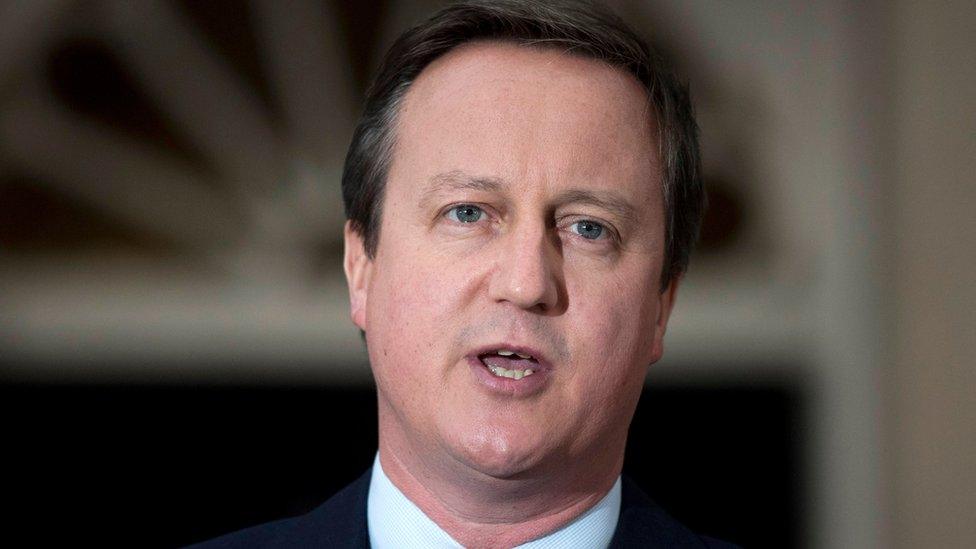David Cameron's advisers get extra pay-off
- Published

Former Prime Minister David Cameron has overruled civil service advice so his special advisers get severance pay worth a total of £282,000.
An exchange of letters between senior civil servants shows the ex-PM was advised against the extra payments, but pressed ahead because the advisers were suddenly losing their jobs.
Mr Cameron resigned as PM on Wednesday.
Unions said it was "astonishing hypocrisy" while the rest of the civil service faced cuts in redundancy terms.
The letters between the chief executive of the civil service, , and Mr Cameron's Principal Private Secretary, , have been published on the Gov.UK website.
'Strong advice'
In his letter, Mr Manzoni said special advisers - temporary civil servants who work directly for ministers and are able to provide more political advice than their Whitehall colleagues - were entitled to four and a half months of pay when they lost their jobs.
"I do not believe there is a case for awarding higher sums than those for which the contract allows," he wrote.
"Legal advice supports this position, and lawyers have been clear that awarding a further month's salary for special advisers in this position would constitute a payment above the contractual entitlement.
"My strong advice is that we continue to abide by the provisions in their contracts of employment."
He said Mr Cameron's decision would increase Number 10's severance pay bill by £282,892, taking it from £747,045 to £1,029,938, and set a precedent across all government departments which could lead to a further 30 special advisers getting the same deal.
He asked for a "written direction" to authorise the higher payments, equivalent to six months' pay, and said it could lead to an investigation by the Commons Public Accounts Committee.
'Uncertain time'
In his response, sent the day Mr Cameron was replaced as prime minister by Theresa May, Mr Case said the then PM wanted to proceed with the payments for special advisers, who were reappointed after last year's election.
Explaining Mr Cameron's decision, he said: "He is conscious that the situation they find themselves in is through no fault of their own.
"The termination of their employment has been sudden and unexpected, and he does not wish to exacerbate an already difficult and uncertain time for them by inferring that their long and loyal service is not fully recognised."
Mr Case said Mr Cameron did want the six months rule to be applied across government.
The FDA union, which represents senior public service mangers, said it was "an astonishing act of hypocrisy from Cameron, increasing redundancy pay for his special advisers whilst in the middle of cutting redundancy terms for the rest of the civil service.
"It sends a clear message about who he valued most."
The Public and Commercial Services Union said it was a "stunning last act of cronyism".
Mr Cameron had been expected to step down in September, but the Conservative leadership contest suddenly ended when Andrea Leadsom pulled out, leaving Theresa May as the only contender.
The PM then announced he would step down within days.